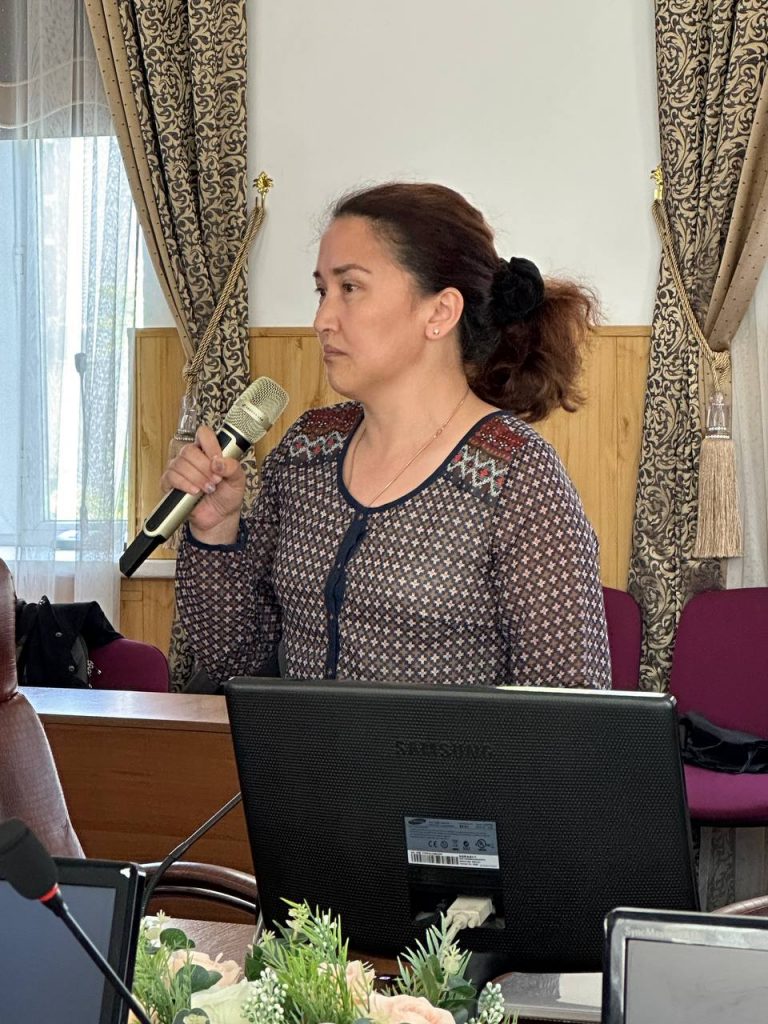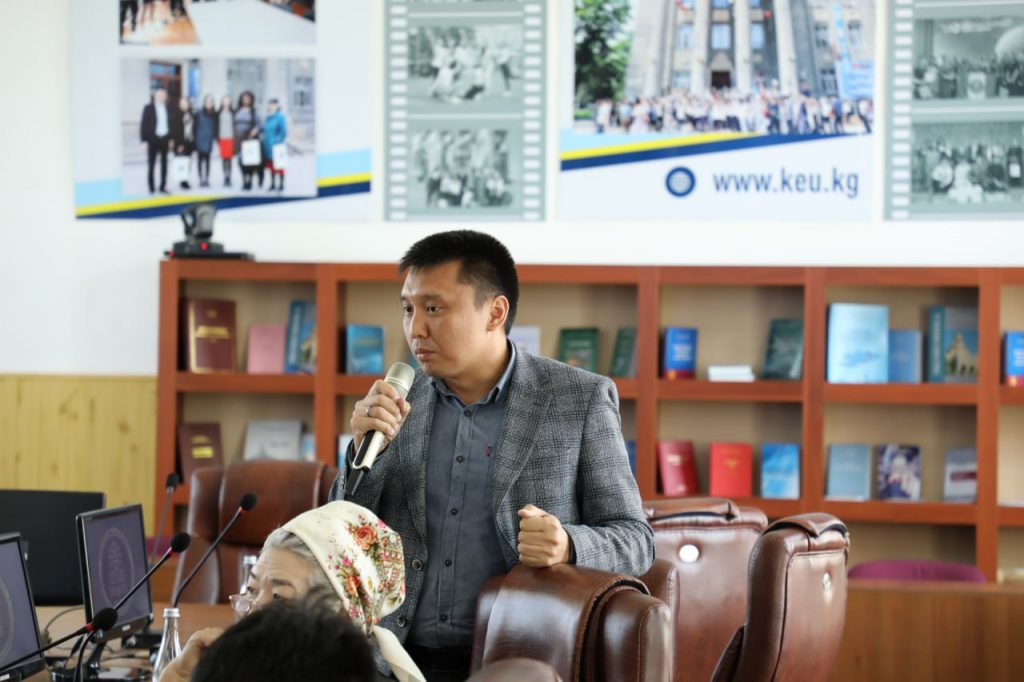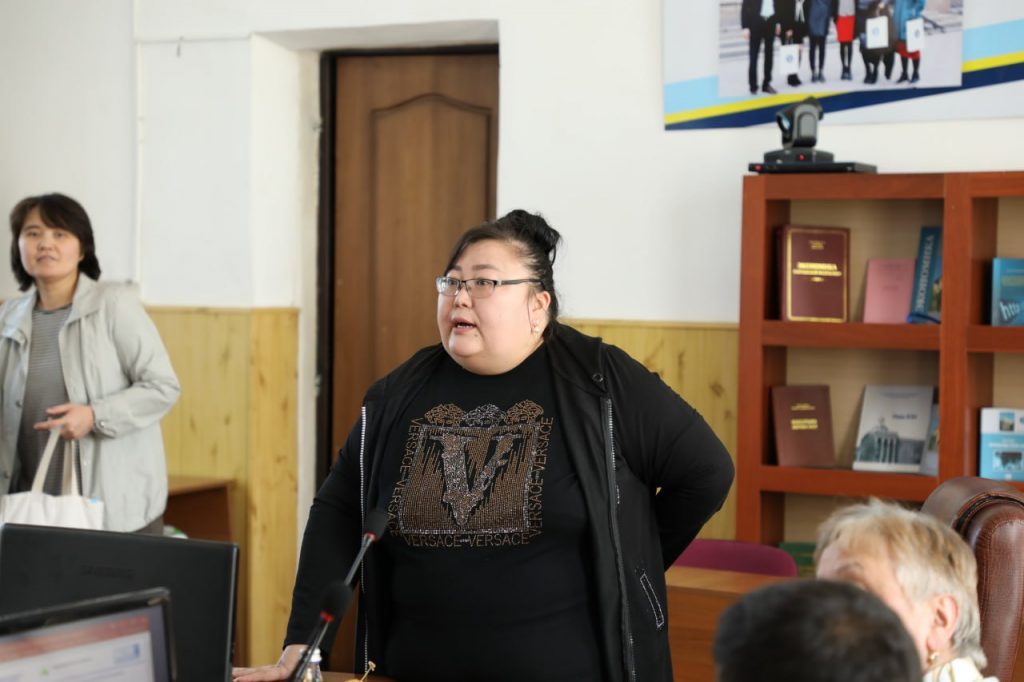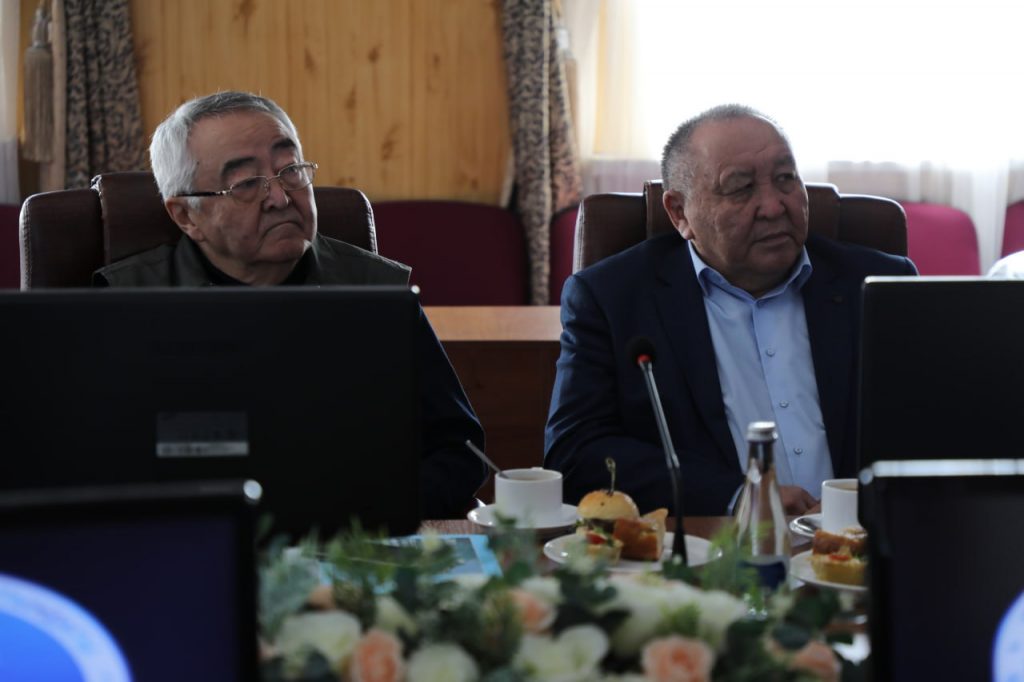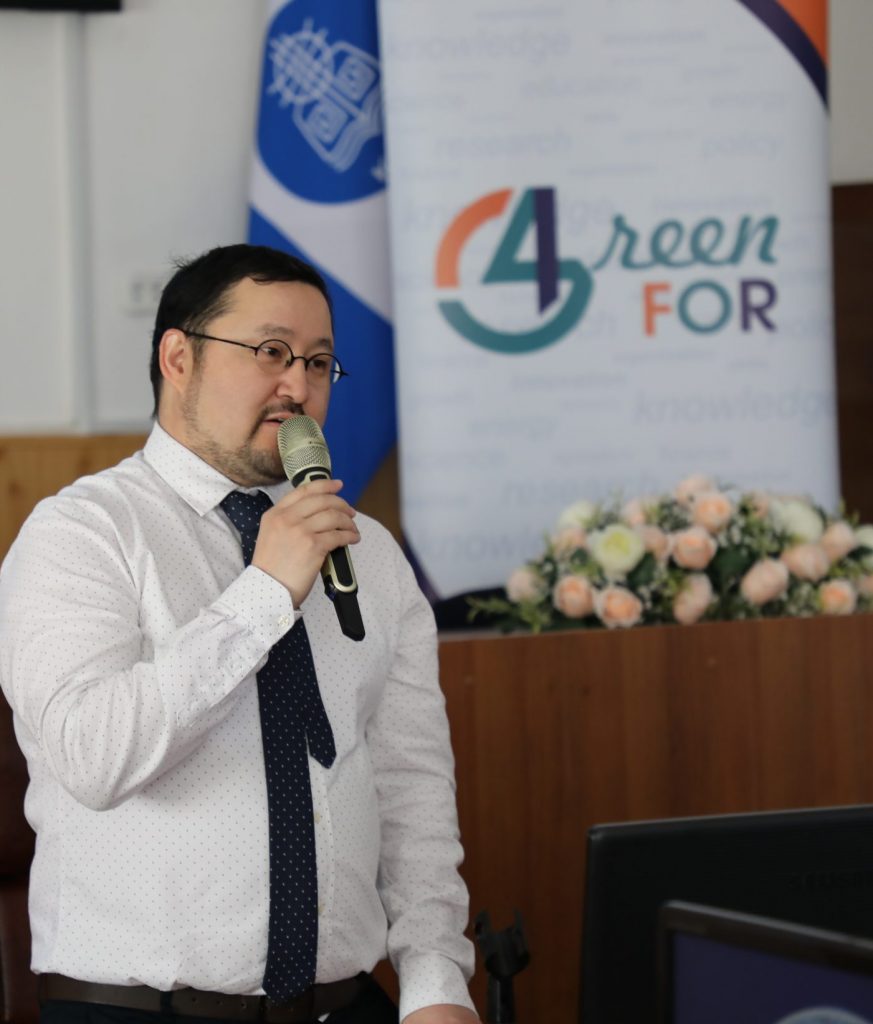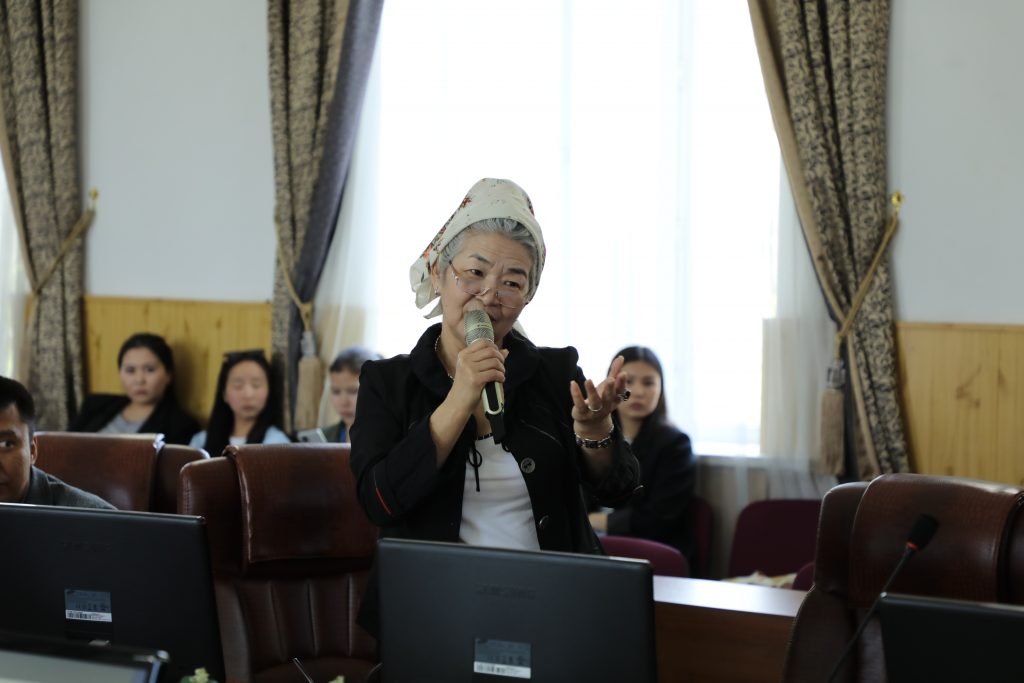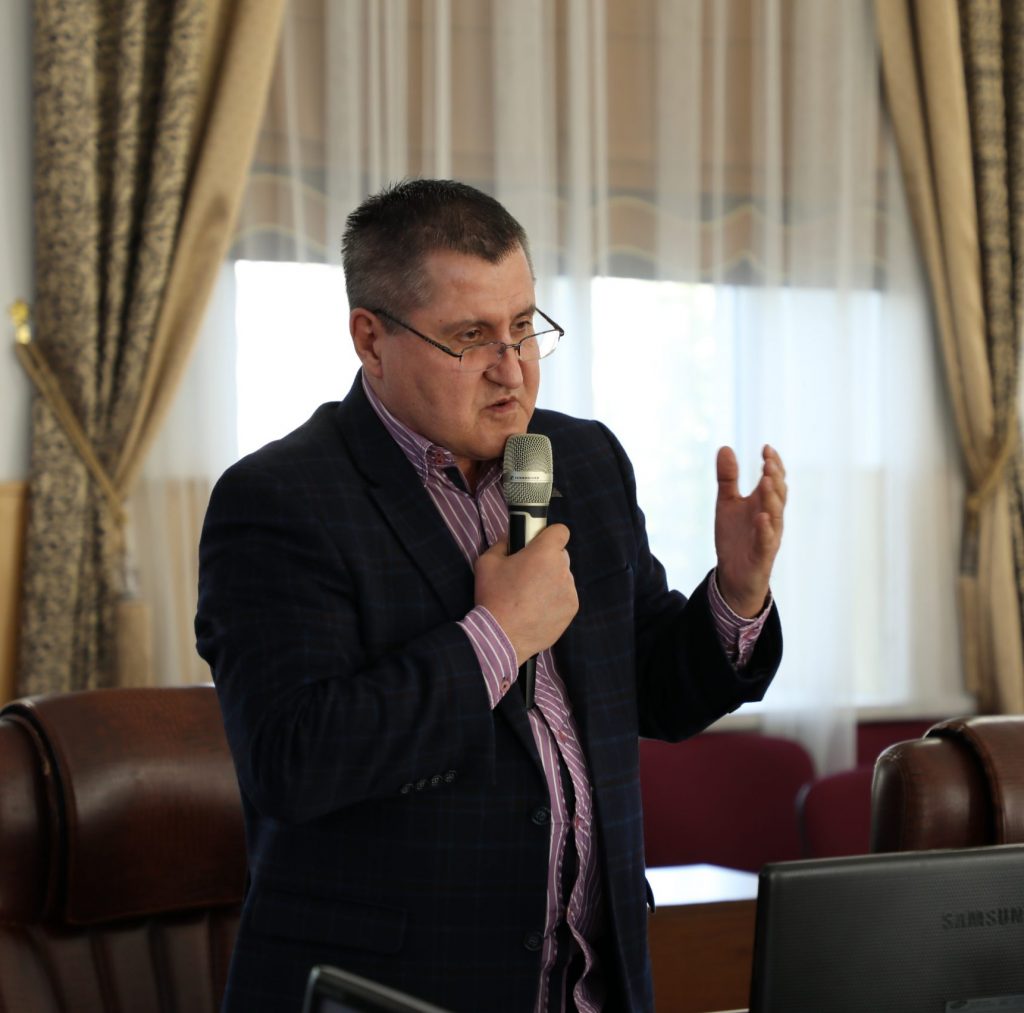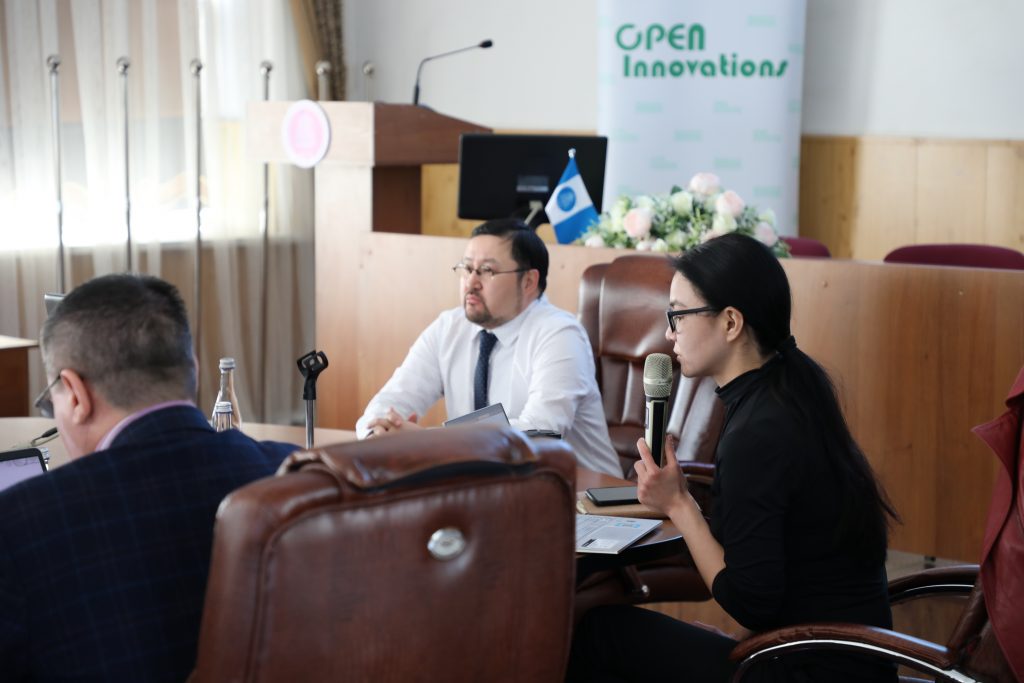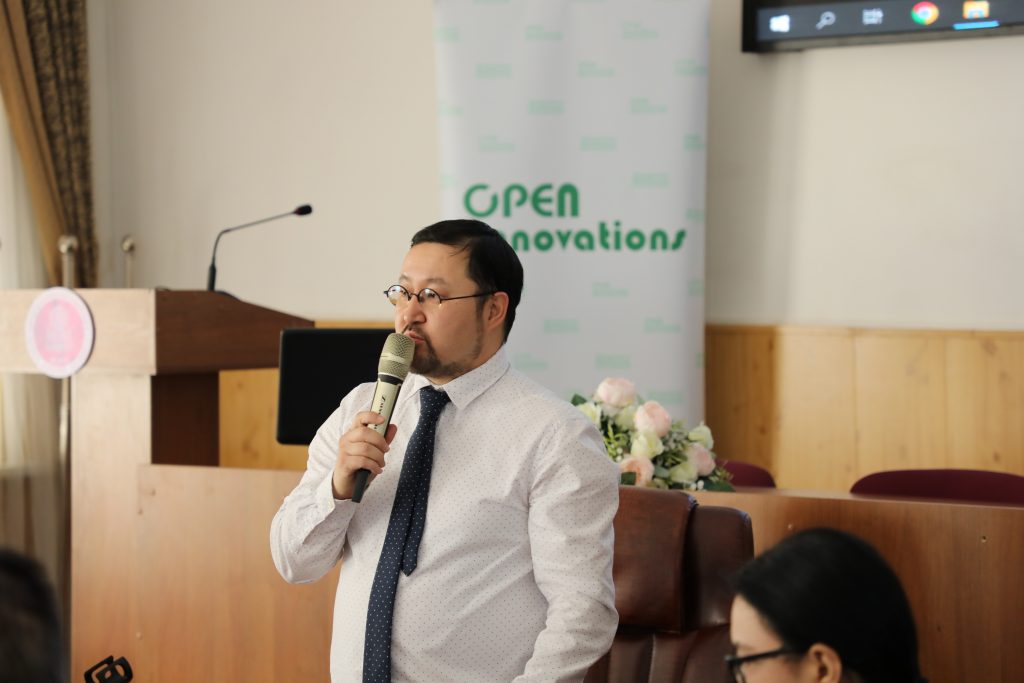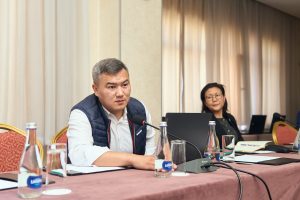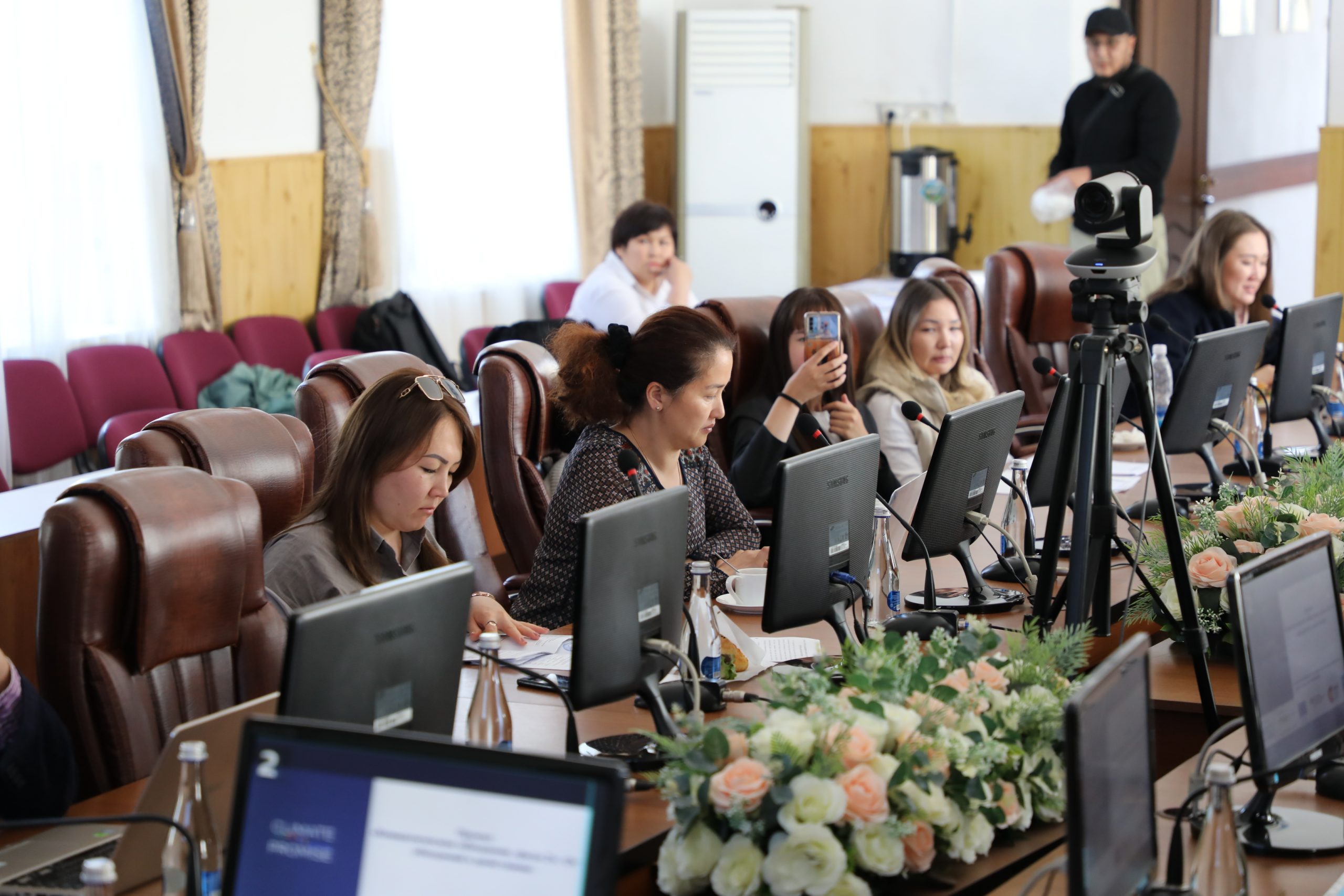
Roundtable: “NDC IMPLEMENTATION PLAN ON MITIGATION AND ADAPTATION IN THE TRANSPORT AND AGRICULTURE SECTORS”
May 4, 2023, Green Alliance KG along with Open Innovations and Green4, with the support of UNDP Kyrgyzstan, held a round table – “NDC IMPLEMENTATION PLAN ON MITIGATION AND ADAPTATION IN THE TRANSPORT AND AGRICULTURE SECTORS”. Round table was attended by all stakeholders representing not only the sphere of transport and agriculture, but representatives of civil society, entrepreneurs, the financial sector, the academic community, youth, specialists, experts, and the like.
For this set of discussion there were four outlined topics: 1) NDC implementation plan for mitigation in the “Transport” sector, 2) NDC implementation plan for adaptation in the “Transport Infrastructure” sector, 3) NDC Implementation Plan for Mitigation in the Agriculture Sector, and 4) NDC Implementation Plan for Adaptation in the Agriculture Sector, with UNDP experts delivering comprehensive presentations and participants representing various stakeholders.
What is NDC?: NDC, or Nationally Determined Contribution, is an action plan for reducing emissions and adapting to climate change. Each party to the Paris Agreement must develop an NDC and update it every five years.
 Nazgul Kulova, National Consultant on the implementation of NDC stressed that “The project “Climate Promise: Phase 2″ and the process of developing the Nationally Determined Contribution Implementation Plan” is an important part of the country’s determination to its commitments under the Paris Agreement, since the country is vulnerable to climate change.
Nazgul Kulova, National Consultant on the implementation of NDC stressed that “The project “Climate Promise: Phase 2″ and the process of developing the Nationally Determined Contribution Implementation Plan” is an important part of the country’s determination to its commitments under the Paris Agreement, since the country is vulnerable to climate change.
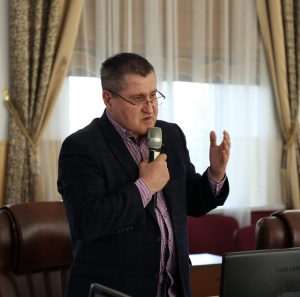 Alexander Temirbekov, experts team leader, and UNDP expert, provided detailed presentations on each panel discussion, where, among others, he emphasized the importance of mitigation and adaptation measures in the renewed NDC (Nationally Determined Contribution) of Kyrgyzstan.
Alexander Temirbekov, experts team leader, and UNDP expert, provided detailed presentations on each panel discussion, where, among others, he emphasized the importance of mitigation and adaptation measures in the renewed NDC (Nationally Determined Contribution) of Kyrgyzstan.
“42 general measures are included in the implementation plan of the NDC in the agricultural sector. Under Goal 1 – ‘Improving Adaptive Capacity’ there are two objectives, the first – Conducting scientific research on the impact of climate change on agriculture and the second – Development of agricultural development policies taking into account climate change issues, gender aspects and the interests of vulnerable groups. Whereas goal 2 called ‘Strengthening climate resilience’ includes 4 objectives; Improvement of land use practices in a changing climate, Strengthening climate resilient crop production, Strengthening climate resilient pasture infrastructure, and Development of climate sustainable livestock breeding” – noted Alexandr Temirbekov, during the presentation on this particular topic.
Atyshev Kobogon, PhD in Economics at Kyrgyz Economic University named afer M.Ryskulbekov KGU, expressed the hope that all the measures that were announced will be implemented at the proper level, as they are necessary for the development of Kyrgyzstan and the topic of green economy is very relevant not only for Central Asian countries but also for the whole world.
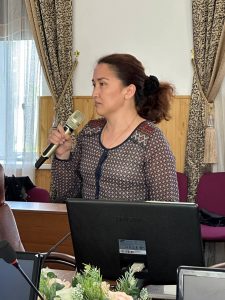 “In order to successfully and effectively achieve the goals under the NDC implementation plan, it is necessary for the state executive bodies to be actively involved in the discussion and definition of objectives, measures and indicators, which will allow for a coherent and focused socio-economic development of the country as a whole. Reducing greenhouse gas emissions in the transport and agricultural sectors will require many different resources from the government, including administrative and financial resources. In this regard, government support for building public-private partnerships based on research and technical approaches is recommended.” – noted Maral Sagynalieva, a researcher of Open Innovations.
“In order to successfully and effectively achieve the goals under the NDC implementation plan, it is necessary for the state executive bodies to be actively involved in the discussion and definition of objectives, measures and indicators, which will allow for a coherent and focused socio-economic development of the country as a whole. Reducing greenhouse gas emissions in the transport and agricultural sectors will require many different resources from the government, including administrative and financial resources. In this regard, government support for building public-private partnerships based on research and technical approaches is recommended.” – noted Maral Sagynalieva, a researcher of Open Innovations.
All speakers emphasized that the proposed mitigation and adaptation measures are well formulated and reflect the challenges facing society, the private sector and the state.
 Ishenov Beishenbek, professor at Kyrgyz Economic University, PhD, expressed concern about the current state of affairs in these two sectors, as there is still a lot to do and not enough financial capacity and investment is being observed. It is important to pay attention to this, and involve the academic environment to study the climate challenges more widely.
Ishenov Beishenbek, professor at Kyrgyz Economic University, PhD, expressed concern about the current state of affairs in these two sectors, as there is still a lot to do and not enough financial capacity and investment is being observed. It is important to pay attention to this, and involve the academic environment to study the climate challenges more widely.
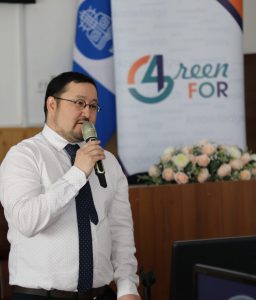 “Kyrgyzstan is one of the most vulnerable countries to the effects of climate change, as the level of public welfare is not high, and socio-economic vulnerability is at risk because of unresolved issues in the transport and agricultural sectors. Transport has become one of the main source of CO2 emissions into the atmosphere here, the issue of traffic jams and smog in Bishkek remains unresolved. A large part of the economically active population works in agriculture, and their activities are particularly vulnerable to extreme temperatures in the summer, which, among others, threatens the food security of the country. In this regard, the Nationally Determined Contribution plan for mitigation and adaptation in the transport and agricultural sectors is vital in the transition from a brown economy to a green economy, and all the goals, objectives, and measures announced at this roundtable are the intention in their implementation are paramount. This is not an easy way, but with a reasonable approach certain successes can be achieved,” said Ilgiz Kambarov, Executive Director of Green Alliance KG.
“Kyrgyzstan is one of the most vulnerable countries to the effects of climate change, as the level of public welfare is not high, and socio-economic vulnerability is at risk because of unresolved issues in the transport and agricultural sectors. Transport has become one of the main source of CO2 emissions into the atmosphere here, the issue of traffic jams and smog in Bishkek remains unresolved. A large part of the economically active population works in agriculture, and their activities are particularly vulnerable to extreme temperatures in the summer, which, among others, threatens the food security of the country. In this regard, the Nationally Determined Contribution plan for mitigation and adaptation in the transport and agricultural sectors is vital in the transition from a brown economy to a green economy, and all the goals, objectives, and measures announced at this roundtable are the intention in their implementation are paramount. This is not an easy way, but with a reasonable approach certain successes can be achieved,” said Ilgiz Kambarov, Executive Director of Green Alliance KG.
Links to relevant publications
This event is being implemented with the support of the UNDP project “Providing Advisory Support in the Development of the “Expanded Plan for the Implementation of the NDC and the Long-Term Low-Carbon Development Strategy (LTS) until 2050”.
This process is coordinated by the Ministry of Natural Resources, Ecology and Technical Supervision of the Kyrgyz Republic and is supported within the framework of the UNDP global initiative “Climate Promise: Phase 2”.
